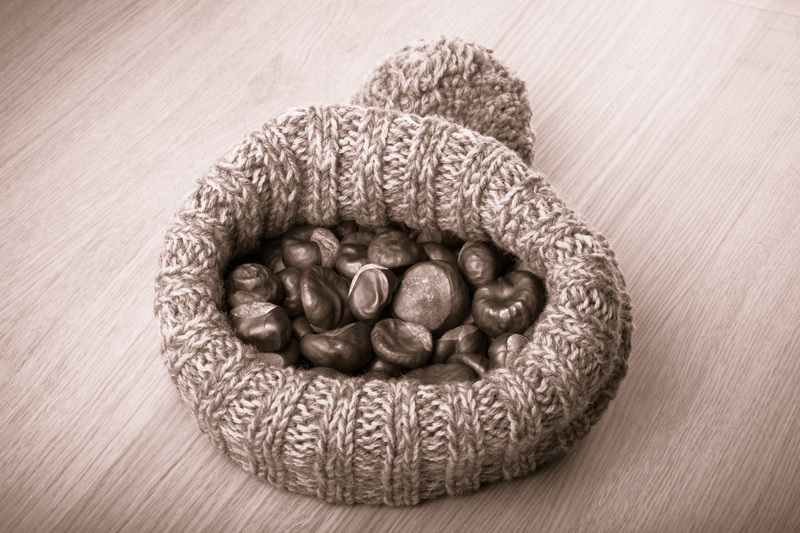Smart Ways to Dispose and Recycle Your Old Pots and Pans
In our quest for a sustainable lifestyle, properly disposing and recycling old pots and pans is often overlooked. However, doing so effectively not only declutters your kitchen but also helps protect our planet. With cookware made from various materials--such as nonstick coatings, stainless steel, aluminum, cast iron, and copper--figuring out what to do with outdated or damaged items can be tricky. In this comprehensive guide, you'll discover smart ways to dispose and recycle your old cooking pots and pans that are both responsible and creative.
Why Proper Disposal of Pots and Pans Matters
Throwing your old cookware in the regular garbage might be convenient, but it's not environmentally friendly. Pots and pans can take decades--sometimes centuries--to break down in landfills, especially if they are made from materials like aluminum or stainless steel. Plus, nonstick coatings can leach harmful chemicals into the soil and water supply. Responsible disposal and recycling ensures these materials are kept out of landfills, conserves resources, and supports the creation of new products.

How to Prepare Your Old Cookware for Disposal or Recycling
- Clean Your Pots and Pans: Wash them thoroughly, removing all food residues and grease.
- Remove Non-Metal Elements: Detach plastic or wooden handles, lids, and rubber coverings that can't be recycled with the metal base.
- Separate Different Material Types: If possible, sort cookware by metal type--cast iron, aluminum, stainless steel, or copper.
- Check for Hazardous Coatings: Verify the presence of nonstick coatings, as some recycling centers require you to strip them off first or may reject these items altogether.
What Are Your Recycling Options?
1. Local Scrap Metal Yards
Many pots and pans (especially those made of cast iron, stainless steel, or aluminum) can be brought to your local scrap yard. These centers pay for recyclable metals by weight, making it a smart choice to responsibly get rid of large or heavy cookware.
- Contact Nearby Scrap Yards: Ask about their policies regarding household cookware recycling.
- Metal Separation: If your pans are comprised of mixed metals, check if separation is necessary.
- Remove Non-Metal Accessories: As mentioned earlier, scrap yards typically only accept pure metals.
2. Municipal Recycling Programs
Some municipal recycling programs accept metal cookware. Check with your city or county's recycling guidelines--many have specific instructions for dropping off large metal items or may host periodic e-waste and scrap metal collection days.
- Visit your city's waste management website.
- Look for information on "bulk metal" or "scrap metal" recycling.
- Inquire about accepted items--some programs don't accept cookware with coatings, while others do.
3. Retailer Take-Back or Trade-In Programs
Leading cookware brands and major retailers sometimes offer take-back programs or recycling events. Some allow you to trade in old pots and pans for discounts on new purchases. This is a great eco-friendly cookware disposal option, especially if you're upgrading your kitchen gear.
- T-fal and TerraCycle: T-fal has partnered with TerraCycle for some regions, accepting nonstick pans for recycling.
- Bed Bath & Beyond: Check if they're running any recycling campaigns or take-back programs near you.
- Local Kitchenware Stores: Some independent shops host annual cookware recycling events.
Creative Reuse: Give Your Old Pots and Pans a Second Life
1. Upcycle into Planters or Garden Tools
Instead of disposing of your cookware, why not tap into some creativity? Old pots and pans make excellent planters for herbs, succulents, and flowers. Simply drill a few drainage holes in the base, add soil, and plant away.
- Herb Gardens: Grow fresh basil, mint, or parsley on your balcony with a funky pan planter.
- Unique Flower Pots: Use cast iron skillets for a rustic outdoor touch.
- Water Features: Get creative with old pots as garden water bowls or birdbaths.
2. Donate to Charity or Local Community Projects
If your old cookware is still functional, many charitable organizations, community kitchens, or soup kitchens will gratefully accept them. Thrift shops, shelters, or groups supporting families in need are always on the lookout for donated kitchen items.
- Call ahead: Some charities have specific acceptance guidelines for kitchenware.
- Check Local Food Banks: Sometimes food pantries also accept clean, gently used cookware.
- Homeless Shelters: These organizations often need basic kitchen tools for communal cooking.
3. Artistic Projects and Home Decor
For those with an artistic streak, transforming old kitchenware into decor is both fun and environmentally friendly:
- Wall Art: Arrange pans into a decorative display in your kitchen or backyard.
- Clocks: Convert a frying pan into a quirky wall clock.
- Lampshades and Candleholders: Upcycle the metal into custom lighting fixtures.
Special Considerations by Cookware Type
1. Nonstick and Teflon-Coated Pans
Nonstick coatings like Teflon contain chemicals that some recycling centers refuse. Never put these in curbside recycling unless your facility specifically accepts them. Instead:
- Check for Specialty Recycling: Certain programs (like TerraCycle) accept nonstick cookware.
- Repurpose for Non-Food Uses: Use old nonstick pans for crafts, paint trays, or organizational containers around your home.
- Contact Manufacturer: Ask if your pan's brand has a take-back or recycling program for Teflon pans.
2. Cast Iron Cookware
Cast iron is a valuable scrap metal--never throw these pans in the trash! However, don't be too quick to dispose of a rusty skillet:
- Refurbish: Strip off rust and reseason to restore the pan for years of use.
- Donate: Cast iron is highly sought after at thrift stores and shelters.
- Recycle: If truly unusable, bring to a scrap metal yard.
3. Copper and Aluminum Pans
Both copper and aluminum have high recycling value. Most scrap metal facilities accept these. Ensure the pan does not have a nonstick or ceramic coating before recycling.
- Remove Coatings and Attachments: Prepare as described above for best recycling results.
- Sell Rare Copper: Some vintage copper pans are valuable-check online before recycling or donating.
What to Avoid When Disposing of Old Pots and Pans
- Don't Use Illegal Dump Sites: Abandoning cookware in alleyways or forests contributes to pollution and fines.
- Don't Mix in Household Recycling: Unless your curbside program states otherwise, metal pots and pans can damage recycling equipment.
- Don't Incinerate Nonstick Cookware: Burning releases toxic chemicals; always find a safe disposal method.

Frequently Asked Questions About Recycling Old Pots and Pans
Can I Put Old Pots and Pans in My Curbside Recycling Bin?
In most locations, curbside recycling programs do not accept cookware. These items can damage recycling equipment or be incompatible with standard metal recycling procedures. Always check with your local waste management authority for specific guidance.
Are There Brands That Take Back Old Cookware?
Yes, some brands have take-back or trade-in programs, often in collaboration with recycling partners like TerraCycle. Contact your cookware brand or retailer for details and options available in your area.
Is It Dangerous to Use Damaged or Worn-Out Pots and Pans?
Absolutely. Damaged nonstick cookware may leach toxic substances when the coating is scratched or peeling. Heavily corroded or pitted pans can also harbor bacteria. When in doubt, it's best to safely dispose or recycle old, unsafe cookware.
Do Scrap Yards Pay for Old Pots and Pans?
Scrap yards typically pay by the weight of metal, so heavy items like cast iron or multiple pans can yield a small return. Call ahead to check if they're currently accepting household cookware and what their payout rates are.
Summary: Choose the Best Cookware Disposal and Recycling Solution
By using these smart ways to dispose and recycle your old pots and pans, you are doing your part to create a cleaner environment and support a more circular economy. Whether you take your items to a metal recycling facility, donate to charity, explore upcycling projects, or participate in trade-in programs, every responsible action counts. Next time you're decluttering your kitchen, remember: Even your oldest pots and pans can still have value--don't let them end up in a landfill!
Key Takeaways for Eco-Friendly Pots and Pans Disposal
- Check local recycling programs and scrap yards before disposal.
- Donate usable cookware to charity or thrift shops.
- Get creative with upcycling--planters, decor, and more!
- Look out for retailer or manufacturer take-back initiatives.
- Always follow safe disposal practices for nonstick and specialty pans.
For more tips on sustainable living and kitchen organization, bookmark this guide and share it with friends who care about the environment!